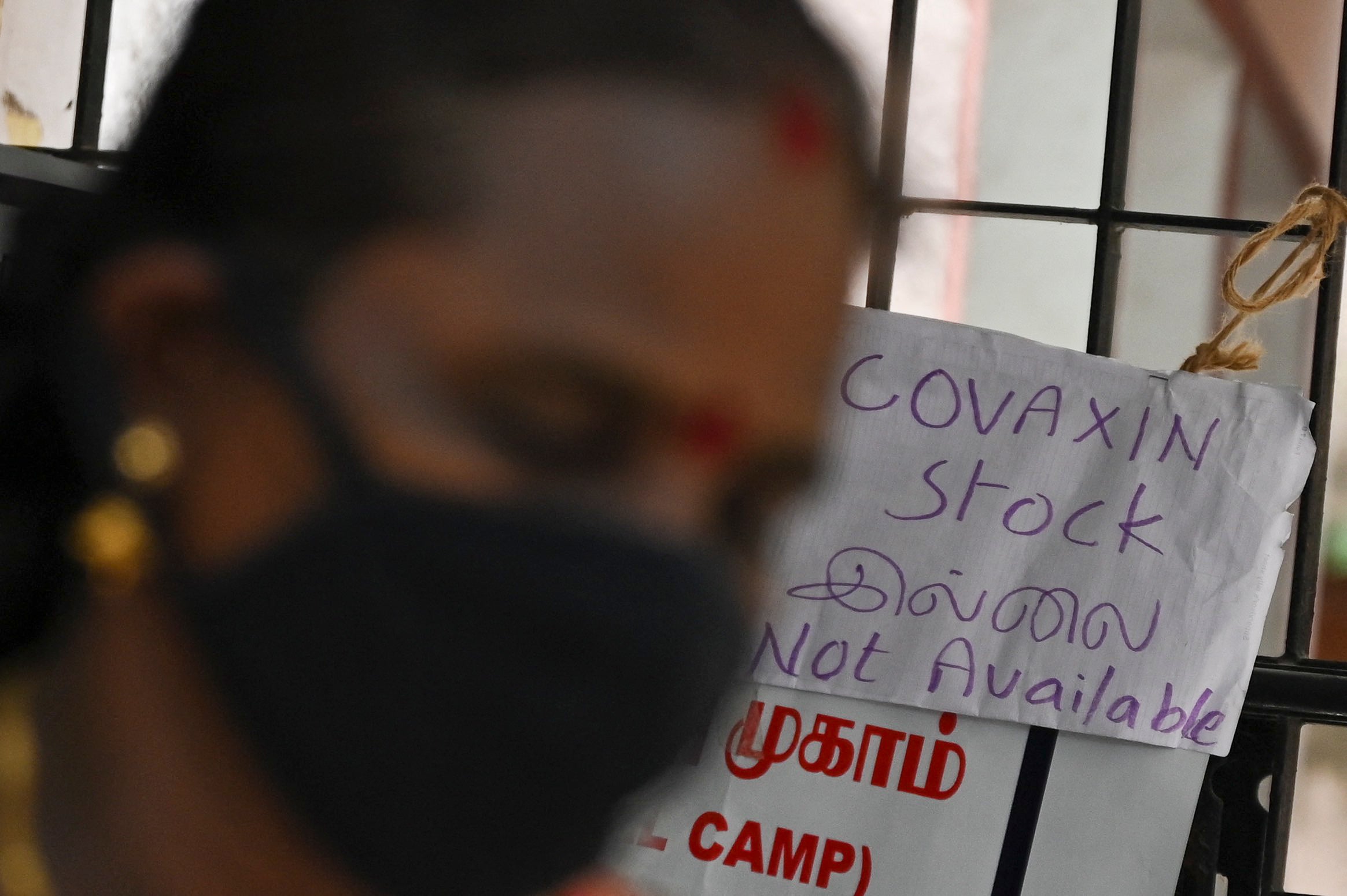‘Not a wise step’: Experts react to India ‘considering’ single dose of AstraZeneca vaccine
Amid reports of a government panel exploring possibilities of relying on single doses, experts raise concerns over lack of evidence

Some of India’s most senior epidemiologists have reacted with concern to reports that the government is considering shifting to a single-dose regimen of the Covid vaccine developed by Oxford University and Astrazeneca, in order to stretch limited stocks.
Several Indian media organisations quoted government sources on Monday, saying that a panel would be set up to investigate the efficacy of giving people just one dose of the vaccine, branded in India as “Covishield”, as well as offering people a mix of vaccines across two doses.
It comes as vaccine centres across the country faced shortages, with many people being turned away despite booking appointments through the government portal. These shortages have slowed down the world’s largest vaccination drive at a time when the country is also going through a devastating second wave of the pandemic.
A government source told The Independent that talks of research into a single-dose vaccine regimen were still in their very early stages, and that a panel of experts has yet to even be formed.
At a media briefing on Tuesday, the health ministry stressed that no one currently expecting a second dose of the AstraZeneca vaccine was about to have their appointment cancelled.
“There is absolutely no change in the schedule of Covishield doses; it will be two doses only,” said VK Paul, a health official and member of the Indian government’s public policy think tank NITI Ayog.
Nonetheless, Monday’s reports have led to concerns among experts, not least because studies by Public Health England have shown a single dose of AstraZeneca’s vaccine is only 33.5 per cent effective against the so-called Indian variant of Covid, also known as B.1.617.2 or the Delta variant, which is understood to have fuelled India’s second wave.
A second AstraZeneca dose was 59.8 per cent effective in protecting against the same variant, the study found.
India’s top virologist, Dr Shahid Jameel, told The Independent it would be “not a wise step” to reduce AstraZeneca to a single dose given such findings. “It would not be the right step to take, according to me, because 33 per cent is very low protection. I really don’t think the government would make such a decision,” he said.
Dr Jameel argued that the government’s decisions should be driven by data and science rather than other factors – in this case how to solve a supply issue.
“India does not have any data on the effectiveness of a single dose as far as I know, and it would take time to conduct these studies,” he said. “Choosing between a medicine that has a one-in-three chance of working as opposed to a full course of that vaccine that has a two-in-three chance of working is [simple] logic.”
Dr Jameel said such decisions should be based on rigorous post-vaccination studies, but that “India is not doing the post-vaccination studies very well. I don’t think we have that data,” he said.
Professor K Srinath Reddy, president of the Public Health Foundation of India, warned India had already stretched the gap between doses of the AstraZeneca jab to 12-16 weeks, based on studies conducted on an earlier variant.
He said more study was needed into how the vaccine protects against newer, fast-spreading variants. “Till that data emerges, we should stick with two doses of the vaccine,” Prof Reddy told The Independent.
Meanwhile, researchers at northern India’s Banaras Hindu University have also claimed a single dose of vaccine could be enough – at least for those who have contracted and recovered from Covid. “We studied the effect of the vaccine on Covid-recovered and non-infected people. Antibodies in recovered people developed in the first week,” Professor Gyaneshwer Chaubey was as saying quoted by news agency ANI.
“While 90 per cent of non-infected people developed antibodies after three to four weeks, recovered people developed antibodies after the first dose. By giving a single dose to recovered people, we can overcome vaccine shortages. We've also written a letter to PM [Narendra Modi] in this regard,” the professor said.
Join our commenting forum
Join thought-provoking conversations, follow other Independent readers and see their replies
Comments
Bookmark popover
Removed from bookmarks